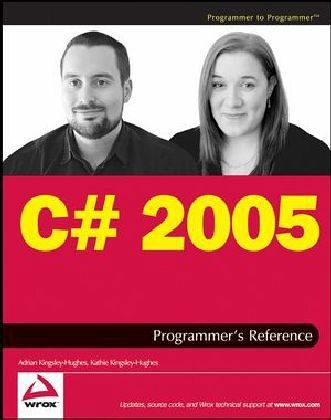Nicht lieferbar

C sharp 2005 Programmer's Reference
Versandkostenfrei!
Nicht lieferbar
- Offering a full and detailed examination as well as a comprehensive overview of one of the hottest programming languages in use, this book includes coverage of the basics of C# programming while still offering in-depth content for more advanced developers
- Filled with code examples and best methods for mastering the new features of C#, this tutorial looks at the complex array of new language options and parameters offered with the C# 2005 release
- This book is the perfect complement to both Beginning Visual C# 2005
(0764578472) and Professional C# 2005 (0764575341)
- Filled with code examples and best methods for mastering the new features of C#, this tutorial looks at the complex array of new language options and parameters offered with the C# 2005 release
- This book is the perfect complement to both Beginning Visual C# 2005
(0764578472) and Professional C# 2005 (0764575341)



